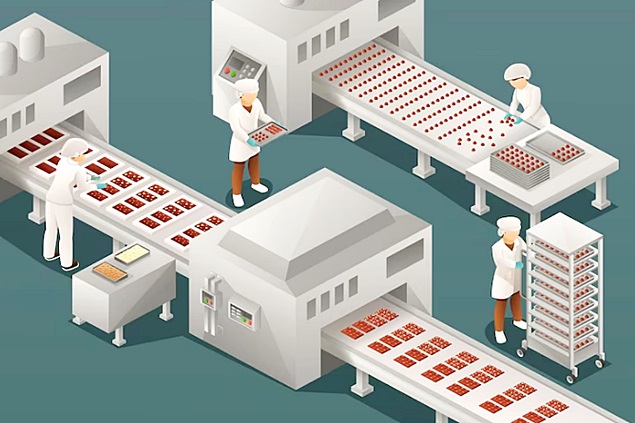1509

Farmers continue to protest again, taking to the streets of Brussels, and EU countries are urging the European Commission to "redirect" the Common Agricultural Policy (CAP), Euractiv notes. At the European Council meeting, member states discussed some of the EU executive's proposals to simplify the CAP, as well as to make efforts for more farmer protection, the source reported.
The EU executive is preparing a series of measures in this direction.
Two countries have their own ideas about how the rules of the game should look in negotiations along the food chain—or rather, from what they should take inspiration.
Spanish Agriculture Minister Luis Planas proudly told journalists on Wednesday (February 28) that Madrid was "exporting" national legislation to the EU, especially farmer protection against selling at a loss, a key clause of Spanish law.
A few days earlier, French President Emmanuel Macron called for the creation of a "European Egalim." Egalim (États généraux de l’alimentation) is a set of French laws regulating contractual negotiations between food producers, supermarkets, and manufacturers.
Controversy
But Egalim laws are not without controversy. A legal battle has been going on for years, with Paris accusing operators in the food sector of circumventing French legislation by moving their purchasing centers to other EU countries with more favorable legislation—a case dismissed by the European Court of Justice (ECJ).
Asked about Macron's comments, Planas described them as "very French behavior" and joked that he would call on Prime Minister Pedro Sánchez to intervene. "He could proudly say the same thing about Spanish law," he added.
The current legal framework at the EU level is the directive on unfair trading practices (UTP), which was adopted in 2019.
Last week, the European Parliament's agriculture committee called on the EU executive to review the directive and create a mechanism for "fair price transmission" along the value chain.
A Commission survey is underway to gather the opinions of farmers and "all small suppliers" along the entire food chain about their experiences with unfair trading practices.
The call is open until March 15, and the results will be used in evaluating the EU's current rules—which the Commission must conduct by November next year. Here are some likely changes:
The grain rupture from Ukraine continues as Polish authorities inspect trucks at the Lithuanian-Polish border. Polish farmers started a week of disruptions at the Lithuanian border on Friday (March 1), accompanying Polish inspectors checking trucks entering Poland to ensure they are not carrying Ukrainian grain.
Warsaw still has a unilateral ban on cereals originating from Ukraine, which Polish farmers say flood their market. They say Ukrainian cereals find their way into Poland as EU goods through Lithuania.
Polish Prime Minister Donald Tusk announced on Wednesday that his government is negotiating a temporary closure of the border with Kiev. A day later, he said Warsaw is also considering banning imports of agricultural products from Russia and Belarus.
The European Commission approves the Romanian aid package for farmers. The EU executive has given the green light to a €164 million aid package to support farmers "at risk of losing liquidity" due to market disruptions caused by Russia's war against Ukraine.
NGO study warns of increasing exposure to "forever chemicals." EU consumers are increasingly exposed to toxic PFAS chemicals—so-called "forever chemicals"—according to a study by the Pesticide Action Network (PAN Europe) published on Tuesday (February 27). Researchers found that 20% of fruits grown in the EU contained residues of at least one PFAS pesticide in 2021.
The European Parliament strengthens protection for traditional foods. Members of the European Parliament approved on Wednesday (February 28) a revised version of the regulation on geographical indications (GIs), which protect food products whose characteristics are linked to their geographical origin through special labels.
The revision provides stronger protection online and aims to address deficiencies related to consumer awareness, low enforcement levels, and environmental concerns.
EU consumers favor new animal welfare laws, survey suggests. Nine out of ten EU consumers want new animal welfare laws, such as increasing living space and banning cage systems and mutilations, according to a survey published by the European Consumers Organization (BEUC) on Tuesday (February 27). The survey also found that 72% of EU consumers would like to see a method of rearing label for all animal-derived products, similar to the one existing for eggs.
EFSA will ask the Commission to "relaunch" the executive director selection process. The EU food authority "is not satisfied" with the outcome of the recruitment process and will ask the EU executive to "relaunch" it, the chairman of the board said. (Photo: Freepik)





